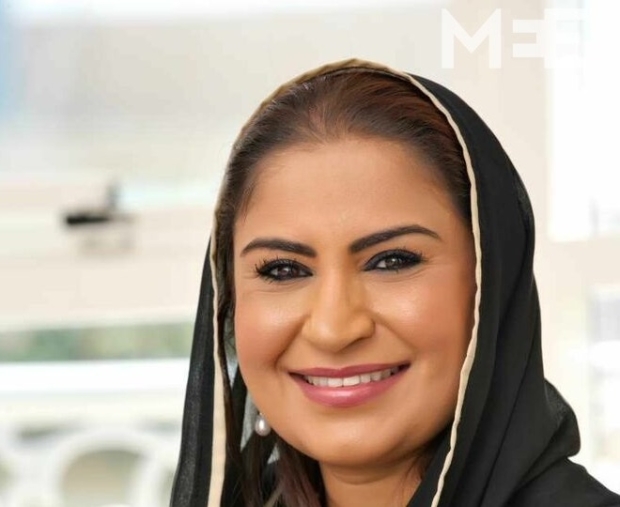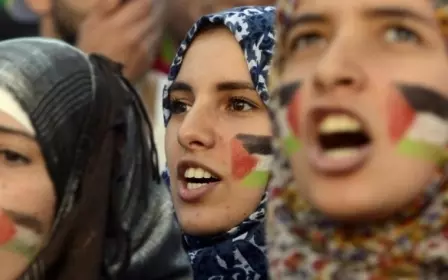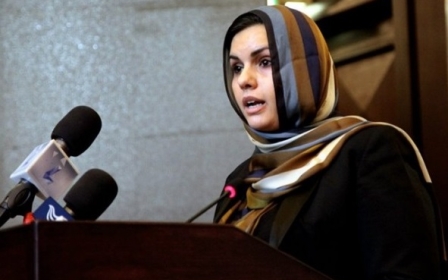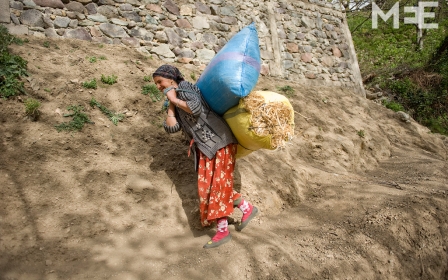Bold footsteps: Emirati woman forges path for single adoptive mothers
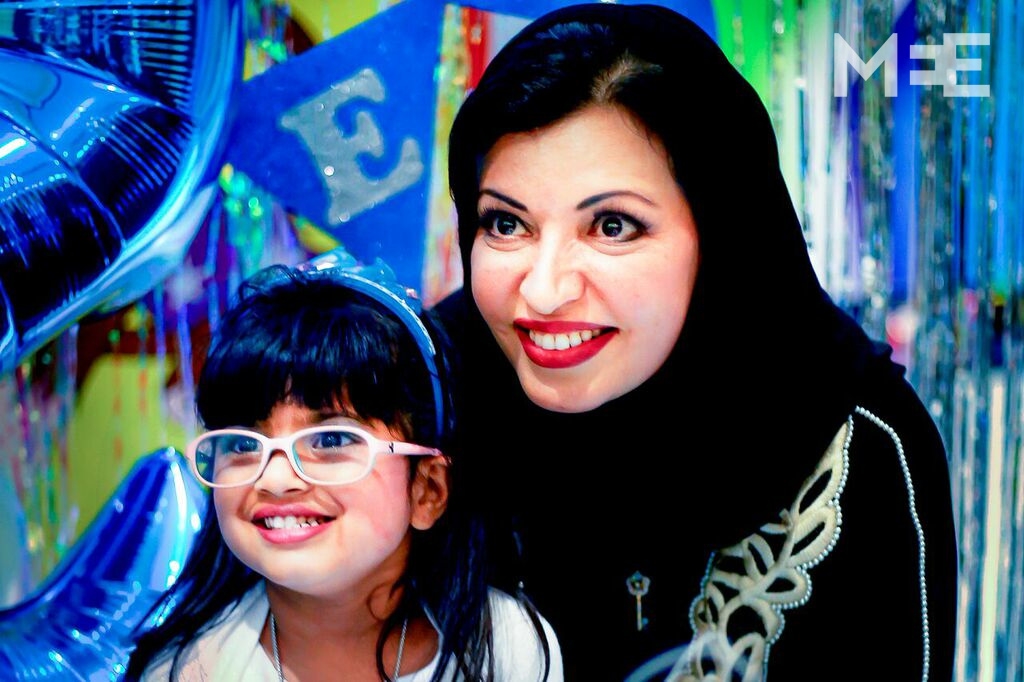
Last month, Aysha Albusmait woke up to a beautiful cake and card made by her five-year-old daughter, Reem.
Like many women on Mother’s Day, she was touched by the gesture. But this gift was somehow more important - it was only their second Mother’s Day together and the first they ever celebrated.
“I’m used to celebrating Mother’s Day with my mum, but now I'm feeling motherhood.”
Albusmait is no ordinary person. In her 49 years, the Emirati has accomplished a dizzying amount of things. She holds a PhD in communications, is studying for a Master’s Degree in sports management, and is a decorated civil servant who was named the top Dubai Government Official in 2007 at the Dubai Government Excellence Programme awards.
Before that she became the first female Emirati fashion designer “when it was still a taboo”. One of her dresses was worn by Indian superstar Ashwariya Rai, long before the world hailed her as the most beautiful woman on the planet.
Albusmait has cultivated a reputation for going against the grain.
“I was named the best fashion designer in the Middle East in 1996, but was not encouraged to go on stage. Still I got up and was handed my trophy in front of the audience and media.”
As a student she was a presenter on a TV programme and wrote a page in a national newspaper on student issues using her real name and photo. Albusmait was visible at a time when the Muslim society was still uncertain how to accept it.
But all of these things are not the most noteworthy thing about this bold and glittering woman. At the age of 47, the unmarried career woman adopted a daughter.
Such an act remains a relative unknown in most places around the world, but is particularly brave given the traditional values of UAE society and a general apprehension around the practice within Islam.
At the vanguard
“Before, my focus was on career success – getting married wasn't a target I was striving for,” she said.
“I was doing many things I loved, but the real satisfaction didn’t come until I understood that my only challenge would be to give my love to another, to bring her up and give her love and happiness.”
Albusmait is at the vanguard of a growing number of women who remain unmarried into their 40s who want to adopt. Dubai’s Community Development Authority (CDA), the body that oversees the Emirati-only adoption programme Embrace, said it is recording significant numbers of women like her. Single Emirati women over 40 make up about a fifth of the waiting list.
There are only a handful of children available for adoption each year, usually after being abandoned by their expatriate mothers avoiding consequences of an illegitimate child in a country where extra-marital sex is a crime.
Dr Huda al-Suwaidi is the CDA family development department director. She said that, after launching Embrace two years ago, she has been surprised at the demand from single Emirati women – who are “great examples of how well the programme could turn out”.
Al Suwaidi said the CDA encourages more women to follow in Albusmait’s footsteps and raise a child not lucky enough to be born into a stable family.
What really sets Albusmait apart is that she is willing to talk publicly about the adoption of her young daughter. After adopting Reem two years ago, she recently opened up about her experience.
“Talking about it for me is giving the chance for a kid to…be in a family. I encourage everybody to adopt, not only the people who don’t have kids. In Islam, the benefits of having an orphan kid in your family [makes you] very close to God.”
All in the family
Strong female pioneers run in the family, it seems.
Albusmait's aunt Hessa Alossaily, whom she calls Mama Hessa, is also one of her closest friends. The elder stateswoman was the first female Emirati in the media when she became a news announcer in 1965 – the same year Albusmait was born.
“There are two sides of Aysha that touch me very much. Firstly, she is carrying the same name as my mother - she was born the same week as my mother died," said Alossaily of her niece. "If I had a daughter, I decided she would carry the name ‘Aysha’; so Aysha became the favourite. The other side is that she is a media person also. We have the same passion, this is very important.”
Alossaily, who has no biological children of her own, said the two women are "like twins" when it comes to their hearts and minds.
“Always God puts in your life something you are missing. Aysha's a daughter, a very close friend. We think the same way, we trust in things the same way and we believe in things the same way and that is rare in life [to find] another person who is carrying your dreams.”
It was Mama Hessa who Albusmait turned to when making the decision to adopt.
“My dream was that Aysha would have a child. Unluckily, that never happened [when she was younger], so when she decided to do that actually we planned this together and said ‘Okay to do this, there are certain things she will gain and lose’.”
Alossaily said the only fear she had was that being an older mother Aysha may not have the patience necessary for a young child.
“I was a little bit worried, but I was thinking this is her right in life, this is her passion and I trust in the passion of the person.”
Reem, whom she calls her granddaughter, has been “a great grant from God”, Alossaily said.
“Aysha could be selfish to the limit, until she had Reem and she forgot all her favourite things and thought only about Reem.”
She is proud of Albusmait's courage to talk publicly about adoption, as well as her efforts to create an Instagram group for the region’s adoptive families (@osar_hadinah). But then again, this is only natural.
“Ayesha is a media person, she has a responsibility. The problem is if she doesn't announce what she believes in, she's not doing her job. If you believe in something, go for it.”
“She gives me the feeling of youth and I am giving her wisdom,” Alossaily said.
Being the change in society
Albusmait said that since speaking openly about her experience the responses have mostly been positive, especially from young people and university students who have even written about her. But it’s not all plain sailing.
“I got some reactions not at all appreciating it, but through my own conviction…I could always convince the society around me.”
She said she overcomes the hurt from negative responses.
Many still decry adoption as haram – or forbidden – in Islam; more education on the matter would be welcome, she said.
“People need to get more knowledge before judging others, not after.”
Still, Albusmait said she has never been particularly concerned about others’ opinions. The choice to adopt was based on research into adoption within Islam and the strength of her own belief that it benefits society.
And she has decades of swimming against the tide to bolster her. Throughout her life she has had strong roles in the community, volunteering for disadvantaged groups such as disabled people.
“Of course, some were not in favour of the things I did… but I started these activities thanks to family support. These things have been the motivation to take me where I am now: having courage and strength in decision-making.”
Looking to the future, not the past
Albusmait respects the Islamic tenet of openness in adoption and not changing surnames – she herself has been upfront with her young daughter about her lineage, and will tell her more and more each passing year until she knows the complete story, she said.
But she said Reem’s future is more important than her past.
“I will not say I don’t care about this, because also this is my daughter and her feelings… but I don’t care about these things as much as I care about how she will change things in her society. I want her to be a role model.”
And if her vivacious daughter, who celebrated her recent birthday with an army of friends and family at Cheeky Monkeys, does this she will be following in her mother’s footsteps.
Albusmait said that, thanks to the UAE’s progressive leadership, women are now the equals of men. Her wish, she said, is that other women don’t hesitate to take on more prominent roles in society – both in this country and elsewhere.
“Women across the world should only focus on the fact that they are a part of society exactly like men… men and women are the makers of human beings, as well as prosperity and happiness.”
Aysha Albusmait has been called many things in her time: a rebel, a career woman, stubborn. But of all the labels, the one that matters most is "Umm Reem" – or Reem’s mum.
“Whenever I hear those words, I am so happy.”
Middle East Eye propose une couverture et une analyse indépendantes et incomparables du Moyen-Orient, de l’Afrique du Nord et d’autres régions du monde. Pour en savoir plus sur la reprise de ce contenu et les frais qui s’appliquent, veuillez remplir ce formulaire [en anglais]. Pour en savoir plus sur MEE, cliquez ici [en anglais].


